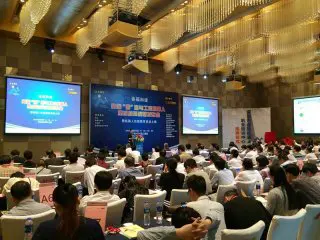While tattoos might be considered scary and intimidating in Japanese society, designs featuring characters from anime, manga and video games have gained traction at home and abroad.
A pun on “otaku” geek subculture, “otattoo” designs are also attracting attention as tattoo artists and others watch whether they can change that negativity with the motifs of young girls and other anime characters.
Yokohama-based Aki, who has been operating as a tattoo artist for nearly 20 years, is a big fan of anime, and he started inking otattoo designs around 2010. His works went viral, leading to a sharp increase in clients clamoring for otattoos. Currently, anime-themed designs account for 30 to 40 percent of the orders Aki receives.
Office workers, students, and even public servants visit Aki’s parlor, saying that they want tattoos of their favorite characters and that they have grown tired of regular designs. About the same number of men and women, mainly in their 20s to 40s, come to his shop.
Because Aki’s works have been covered by foreign media, his clients also include many non-Japanese fans. There are even otattoo artists operating in the United States and Mexico, with some of them apparently having more than 200,000 followers on their Instagram accounts.
However, tattooing also comes with risks. A considerable number of people want to have their skin art removed when they marry or land a job, but in some cases, they are left with distinct scars or are required to pay considerable amounts for the surgery.
Tattooing has also faced increased hostility. The King of Tattoo international convention, which had been held in Tokyo since 2005, ended its 12-year history in April this year. Enthusiasts had gathered at the convention to hold contests and other events, but it apparently became difficult to secure a venue.
Many tattoo artists have also been targeted by police for allegedly tattooing customers without a medical license.
Driven by an increased sense of crisis and a need to create an environment where tattooing is socially acceptable, tattoo artists and enthusiasts submitted a petition with about 23,000 signatures to the Diet last year asking for a legal system focusing on tattoo artists. They are considering ways to introduce exclusive license and registration systems and other measures. But efforts for legislation are still slow-moving.
“It is quite difficult because there are also many lawmakers hesitating to participate saying that, ‘I could be mistaken as being on the yakuza’s side,’” said Akihiro Hatsushika, a Lower House member of the Democratic Party planning to establish a cross-party league of Diet members for the cause.
A survey conducted by the Kanto Federation of Bar Associations in 2014 showed that 51.1 percent of respondents said they felt “disgust” when they saw tattoos, topping the list of their impressions (multiple answers allowed), followed by 36.6 percent who said they felt “scared.”
“Thanks to yakuza movies that were popular in the 1960s and 1970s, the public image of tattoos as being inextricably linked to yakuza members became widely accepted,” said Yoshimi Yamamoto, a professor of anthropology at Tsuru University, who is an expert on tattoo culture in Japan.
“Part of the reason behind the increasing number of people who have a sense of disgust may stem from the fact that people began going to public bath houses less frequently and have less opportunities to see tattooed individuals after private baths became common in their homes.”
As for the otattoo trend, she analyzed: “It’s an example of modern tattooing greedily incorporating various cultural factors.”
Tattoo artist Aki added: “Tattooing is an art form that requires high skills. It will be interesting if the scary public image is changed through otattoo.”
(ASAHI)
 简体中文
简体中文





